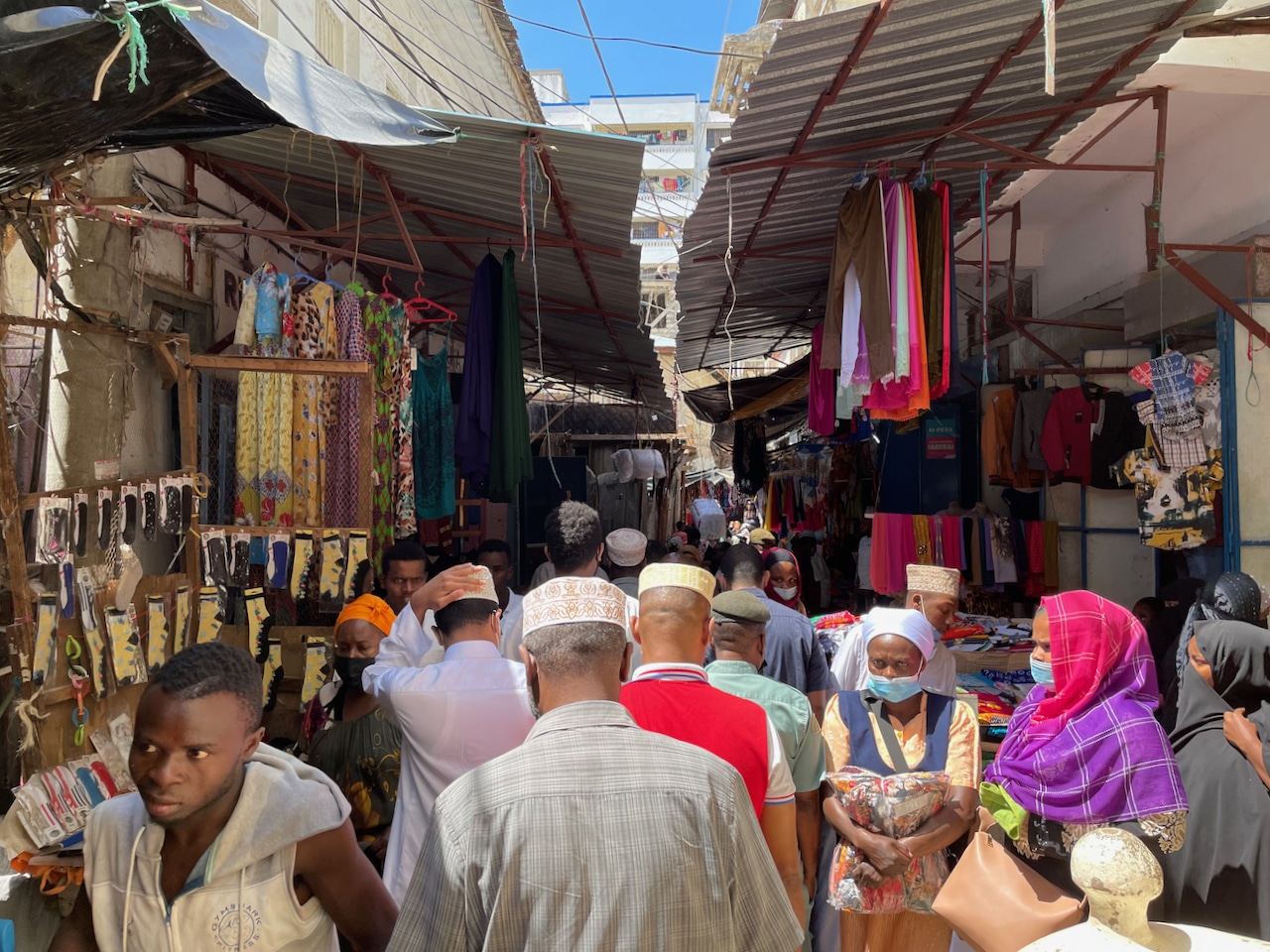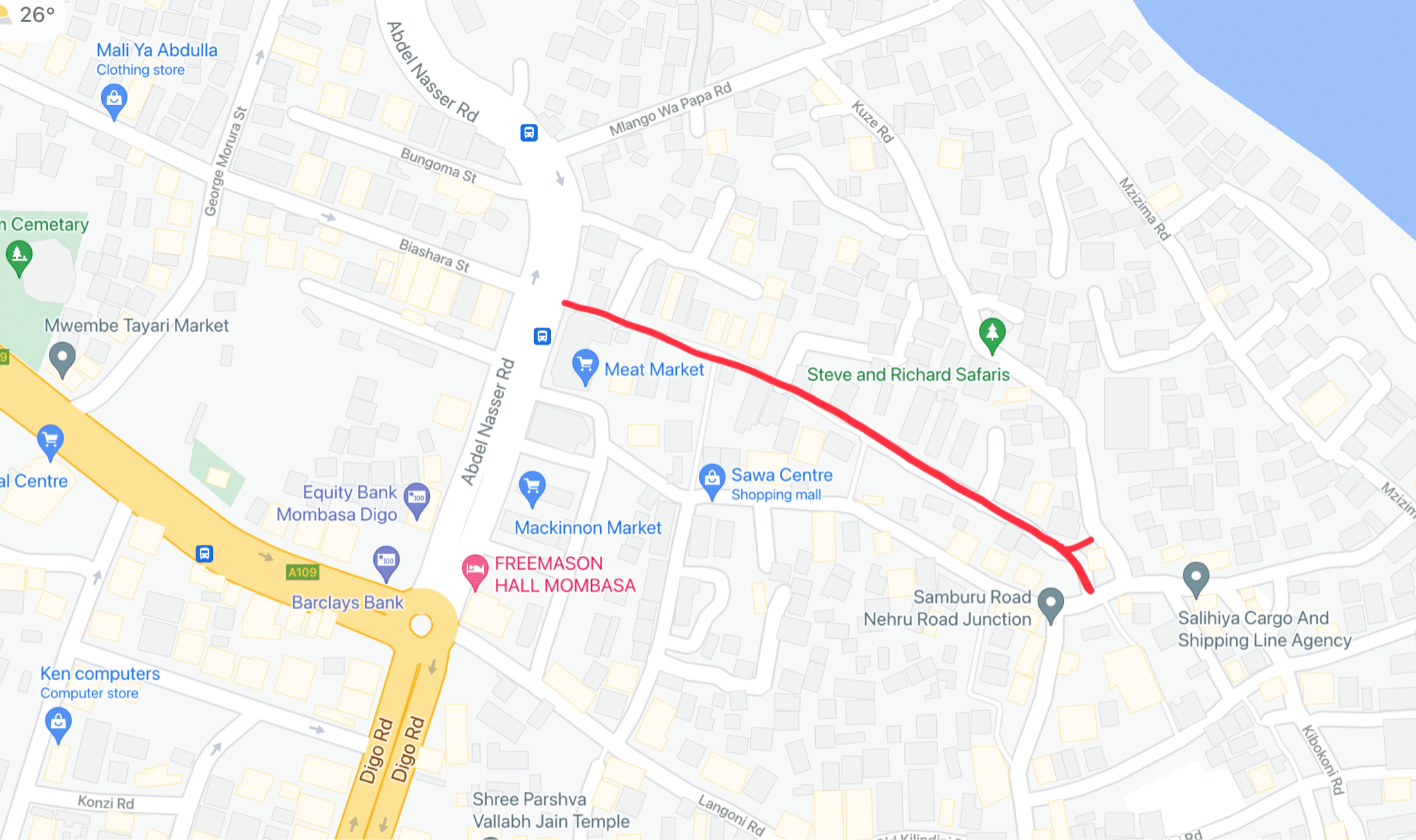POP-UP Pedestrianization
In addition to responding to the COVID 19 pandemic, the project in Mombasa, Kenya supports the piloting and acceptance of active mobility and thus the development of sustainable and inclusive cities.
In addition to responding to the COVID 19 pandemic, the project in Mombasa, Kenya supports the piloting and acceptance of active mobility and thus the development of sustainable and inclusive cities.
 © ITDP
© ITDP TUMI is working with ITDP, UN Habitat and the County Government of Mombasa (CGM) to upgrade Biashara Street, located in Mombasa’s Old Town to a safe, organised, well-managed, and people friendly street for all.
Biashara street, like many streets in Old Town, some of which date back to the 16th century, is a narrow street, bustling with vending activities. Pedestrians buy from the vendors who have put out their wares as they pass by.
Movement along the street has been difficult especially during the COVID-19 period due to lack of clear space allocation for pedestrians and vendors.
TUMI plans to reroute the traffic and close the road for cars. This barrier will be opened and closed daily (in the afternoons) to allow morning and day traffic to flow thru, and afternoon and evenings to be given to pedestrians.
The city of Mombasa is an important partner for the implementation of the pilot.
 © 2023 GeoBasis-DE/BKG, Google
© 2023 GeoBasis-DE/BKG, Google Image: The study area consists of Biashara St (-4.0572483576721625, 39.67396169003667), from Abdel Nasser Road to Nehru Rd, a length of approximately 300 m.
Goals:
By providing a car-free zone, it will allow the citizens of Mombasa safely enjoy the street food at a safe distance. This space increase will also provide vendors with increased opportunities to have a safe and vibrant space to sell more food and create inclusive streets.
500m of pedestrianized streets enable outdoor eating on Makadara Road, facilitate physical distancing and improve access.
Create an inclusive and conducive area where pedestrians and vendors can interact safely. The end result would be Pop-up pedestrianization.
The success of this project is expected to improve economic activity by increasing the flow of pedestrians and transforming Biashara street into a 24hr shopping space.
The initiative also serves as a pilot project as the city plans to pedestrianize old town, and transform it into an inclusive, conducive, and commercially vibrant space, improving livelihoods for the residents.
The project also serves a case study showing the benefits of car free streets which lead to reduced congestion and improved business activity.

Graduate in environment and climate change policy who worked extensively in transport and climate change policy development in Kenya. He is based in Nairobi Kenya and is actively working on the transformation of public transport in Sub-Saharan Africa.

Mechanical Engineer who immediately went into project management within the field of construction; having worked two years in USA and a further five years for GIZ in Africa focused on project implementation. After developing a strong focus on monitoring and controlling, he successfully began managing projects in the field of technical education and capacity building in Asia.
Focus Areas: TUMI Data, TUMI Labs, TUMI E-Bus MissionE-Mail Address:
info@transformative-mobility.orgYou need to load content from reCAPTCHA to submit the form. Please note that doing so will share data with third-party providers.
More InformationYou are currently viewing a placeholder content from Turnstile. To access the actual content, click the button below. Please note that doing so will share data with third-party providers.
More Information